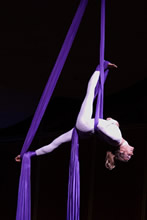The Triangle Brass Band launched its 2013-14 season with a “Classical Favorites” concert. The Cary Arts Center program consisted of essentials of brass band repertoire as well as player favorites specifically selected for the band’s opening concert. From compositions for brass band to orchestral and wind band transcriptions, the selections represented a range of styles and emotions from quiet and contemplative to triumphant and programmatic. Most of the works performed were inherently impressive, and this talented ensemble gave them their best attempt, though some selections fell a little flat. Overall, however the band had a deep, balanced sound that was conducive to the music played, and the selections provided a representation of the varied repertoire of the ensemble.
Triangle Brass Band was formed in 1986 as a joint venture of the A.J. Fletcher Foundation and Capitol Broadcasting Company of Raleigh, NC. A non-profit organization, the band also sponsors youth bands made up of middle and high school students in the Triangle area. This program was informative and enjoyable, as artistic director and conductor Tony Granados shared interesting tidbits about each work, such as how the first piece on the program, Edward Elgar’s “Pomp and Circumstance” March No. 1, was performed as a recessional at Yale University’s graduation ceremony in 1905. Elgar received an honorary doctorate degree then, and this is why the tune is now so popular as a graduation march. The band performed the march with the necessary decorum but had a few shaky entrances and releases at the lesser-known fanfare sections.
The next three works were similar in nature, featuring contemplative moments and contrasting flourishes that served to showcase the different sections of the band. “Chester,” from the New England Tryptych by William Schuman, was both graceful and heroic, with delicate layering between sections that gradually built to an impressive climax. The E-Flat soprano cornet, played by Curtis Park, and the percussion section were the icing on the cake in this movement, balancing with the larger ensemble nicely. The cornets lost some clarity in faster passages here and throughout the concert, a disappointment because their tone and blend was for the majority of the night richly sonorous. Philip Sparke‘s “Time Remembered” exposed tenor horn, baritone, euphonium, and flugelhorn sections, but their delicate treatment of their harmony sections truly showcased some excellent intonation and tone color. “The Second Dawning,” by James L. Hosay, concluded the first half; this work was chosen by a band member who had the piece played by the brass band at his wedding. Principal cornet Lisa Burn and flugelhorn Bob Peckham shone in lyrical solos before a loud and heartwarming ending.
After intermission, the band attempted a brass band transcription of Jean Sibelius’ “Finlandia.” They played the opening section faster and in a more measured way than an orchestra typically would, but this section sounded loud, full, and impressive in all-brass voices. Overall, the work was a little disappointing because of a lack of ensemble unanimity: attacks and releases were not always precise, intonation was sometimes an issue, and a few off-beats were not well-timed well. The sound and balance of the ensemble were great, and the ending was strong, but such a popular work could have been played with more precision.
The following set consisted of Lev. Knipper‘s “Cossack Patrol” March, arranged by Gordon Langford, and Peter Graham‘s “With Fire and Sword.” Both pieces depicted specific settings: the first, a Russian march, and the second, a Persian market scene. Tempo was sometimes an issue, and the cornets had a few unsure moments of fast playing, but the bass instruments took control and showed some great talent.
The final piece, Peter Graham’s “Gaelforce,” was obviously the most fun for the performers, who barely smiled during the whole concert until this work. The lilting, rocking Celtic composition featured melodies from “The Rocky Road to Dublin,” “The Minstrel Boy,” and “Tossing the Feathers.” This was the most cohesive selection on the program, from the quick melodies to the percussion break in the middle on field drums. Graham’s piece was a great choice to end the concert because it fired up everyone, audience and ensemble, although putting it earlier might have helped the performers drum up a little more enthusiasm for the rest of the program.
Overall, the band played very well, as it is made up of many talented individuals. However, this performance would have been more polished if the individuals had only been able to listen more closely, respond more quickly, and relax and enjoy the show. Triangle Brass Band will continue its concert series with a “Sounds of the Season” performance in Wake Forest on December 14, repeated in Cary on December 15. See, it really is the Triangle’s Brass Band!











